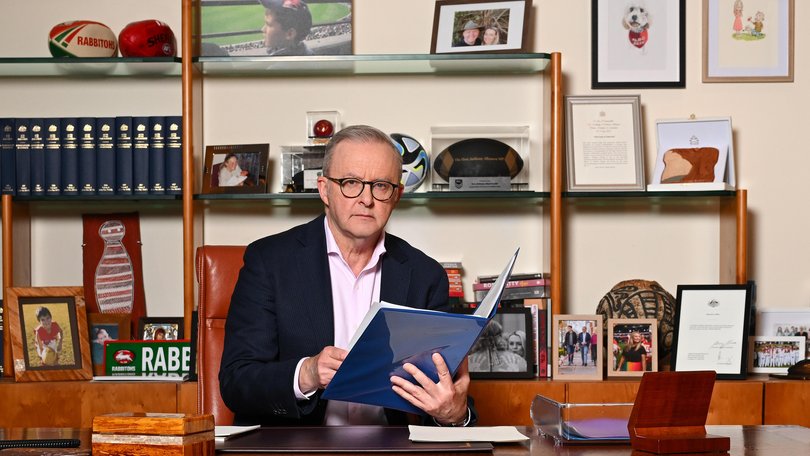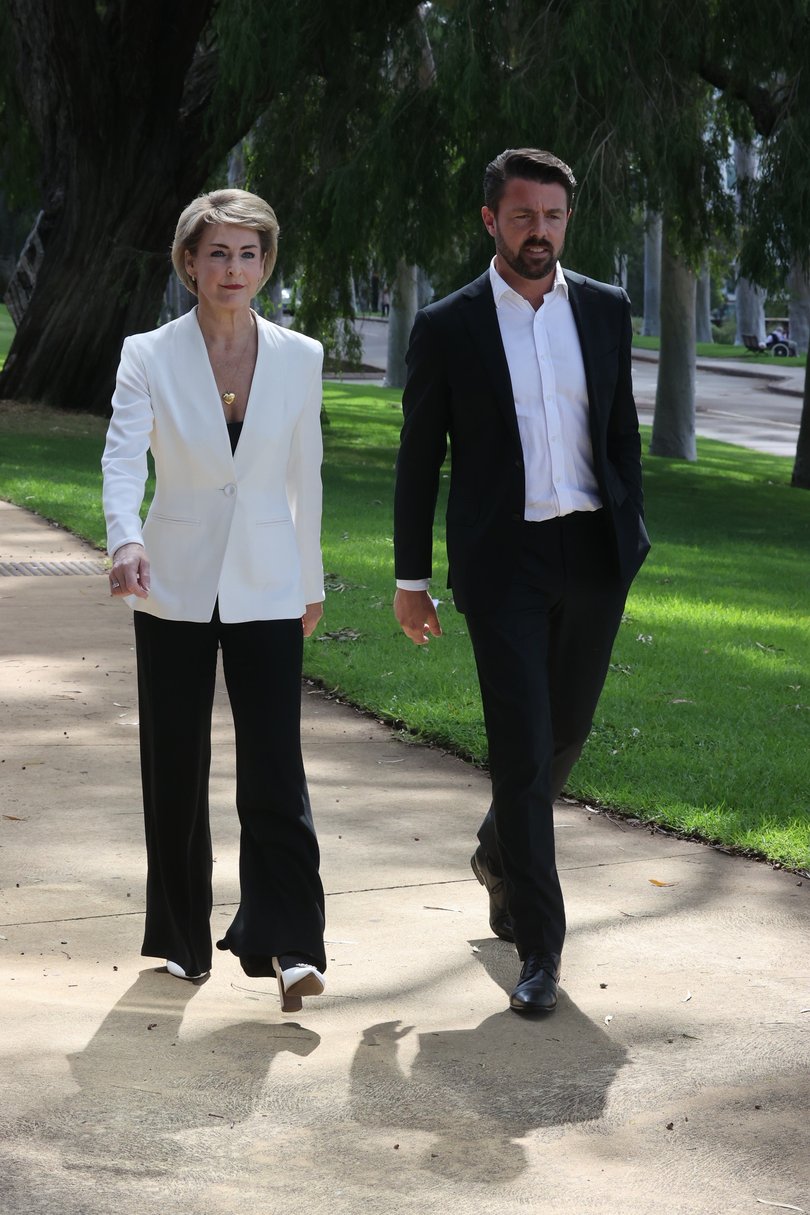Childcare industry a top ‘priority’ for Albanese with new laws cutting off funding for substandard centres
Parents have been let down in the past by governments and regulators, Anthony Albanese has admitted as Labor scrambles to fix a childcare crisis with new laws to cut off funds to substandard centres.

Families have been let down in the past by governments and regulators, Prime Minister Anthony Albanese has admitted as Labor scrambles to fix a childcare crisis with new laws to cut off funds to substandard centres.
Legislation to cut subsidies for centres with egregious and continued breaches of quality standards and prevent providers who persistently fail to meet minimum standards from opening new centres will be put to Parliament on Thursday.
The Opposition is expected to support the new laws, which will also make it easier for regulators to send inspectors into childcare centres.
Sign up to The Nightly's newsletters.
Get the first look at the digital newspaper, curated daily stories and breaking headlines delivered to your inbox.
By continuing you agree to our Terms and Privacy Policy.“Clearly, governments, regulators haven’t done well enough in the past, but we are determined to make sure that parents can have the peace of mind that they deserve,” Mr Albanese told The West Australian in an exclusive interview ahead of parliament’s first sitting since the Federal election.
Public trust in the childcare sector has crumbled after shocking revelations that alleged paedophile Joshua Dale Brown was able to work unheeded in 23 childcare centres, prompting warnings to more than 2000 families to test their children for sexually transmitted infection.
Mr Brown has been charged with dozens of offences, including alleged sexual assault, producing child abuse material and contaminating food with his bodily fluids.
The accused had a mandatory and valid working with children check, and the scandal has unleashed a wave of anger and shock among parents over what they see as a lapse in the screening system for childcare workers.
Mr Albanese said tightening the regulations around the childcare sector – a responsibility shared by Federal and State governments – would be one of Labor’s top priorities as parliament resumes this week.
“[Education Minister] Jason Clare has been working to ensure that legislation is ready,” he said in an interview returning from a six-day trip to China.
“That will be about giving the assurances that parents would expect for recognition of a national database, also allowing for defunding of centres that don’t meet expectations and standards.”

Almost 1500 of Australia’s 18,000 childcare services – including after-school care, preschool/kindergarten and family day care as well as long day care centres – haven’t yet been assessed against the minimum quality standards.
Another 1478 centres are still “working towards” the standards, meaning they are judged to provide a safe care environment but fall short in at least one of the seven quality areas.
Shadow education minister Jonno Duniam said the Opposition would back the tougher laws, but it would only be a small part of what was needed.
“We’ve got to do everything we possibly can to deal with what is a problem in our childcare sector, though this legislation only goes so far,” he told ABC’s Insiders.
“We again extend our support to the Government to urge state and territory governments to come together and act with urgency to resolve all of the problems we have across the sector.”
He wants to see a national register of childcare workers so employers could see if someone had been sacked from a previous centre and why, along with mandatory CCTV in childcare centres, something some of the nation’s largest providers have voluntarily moved to install.
Senator Duniam also called for “an open conversation about the structure of childcare” with for-profit operators now dominating the sector.
“I don’t think being for-profit necessarily is a bad thing. Yes, sure, they want to return money to their investors, but at the end of the day, child safety is something that we should be able to ensure is provided for, no matter the setting,” he said.
Attorney-General Michelle Rowland said a national working with children check system was top of the agenda for a meeting with her State and Territory counterparts within weeks.
They are aiming “to ensure that we have a solution that allows near real-time reporting, access to data, making sure that we’ve got consistency and uniformity across that”, she said.
An overhaul of the fragmented system was recommended 10 years ago, and Ms Rowland said the Albanese Government “has not been idle” with a pilot of a new system happening.
